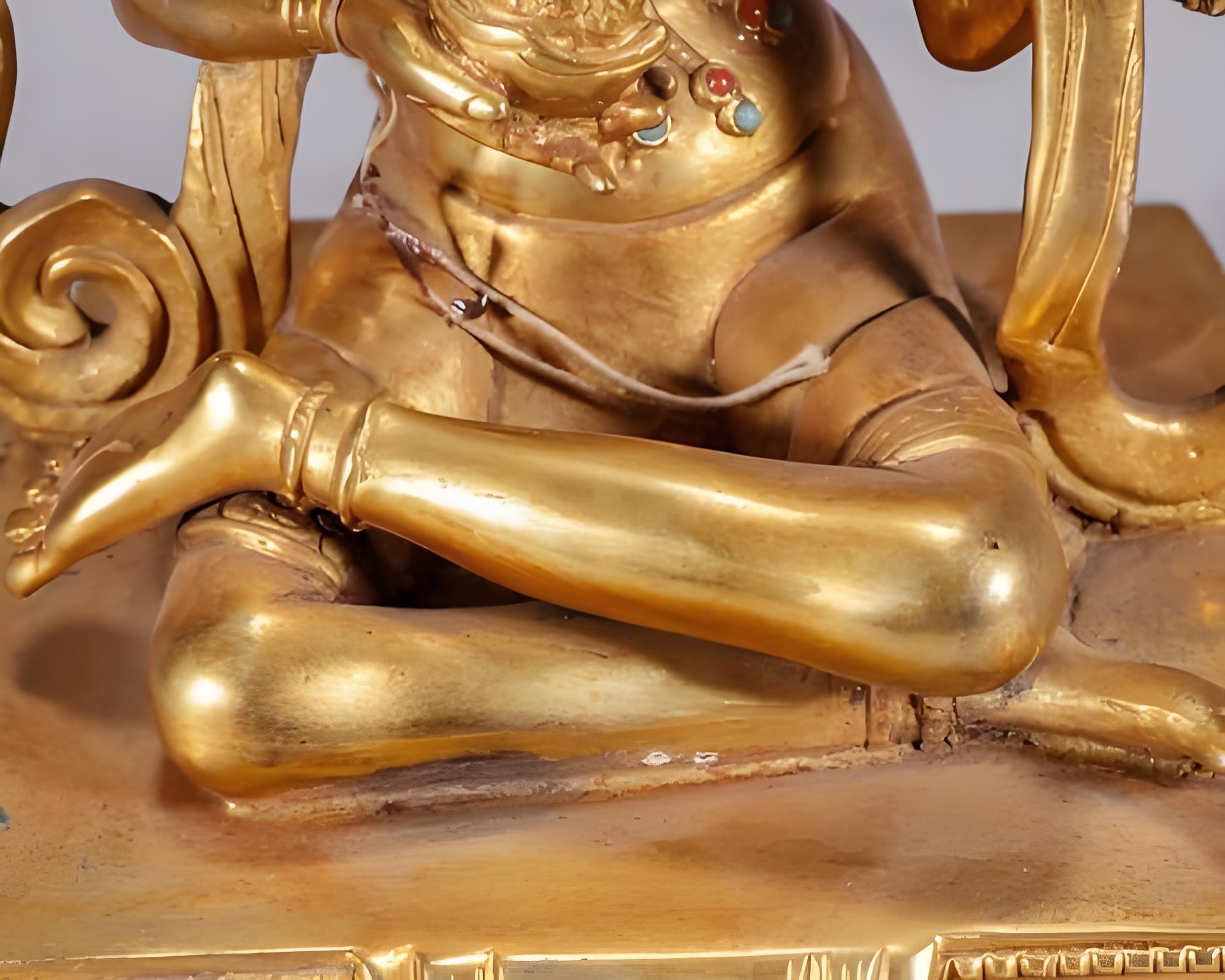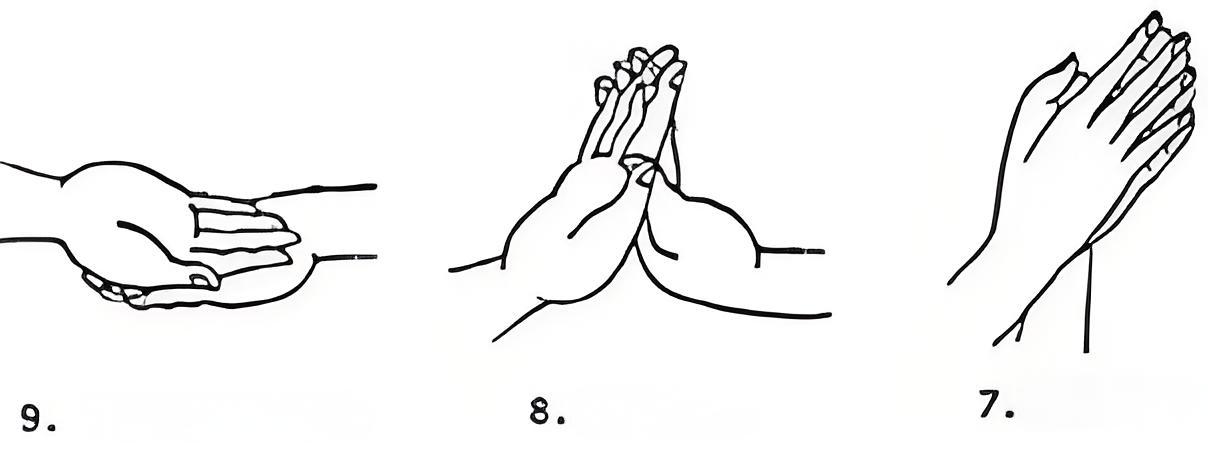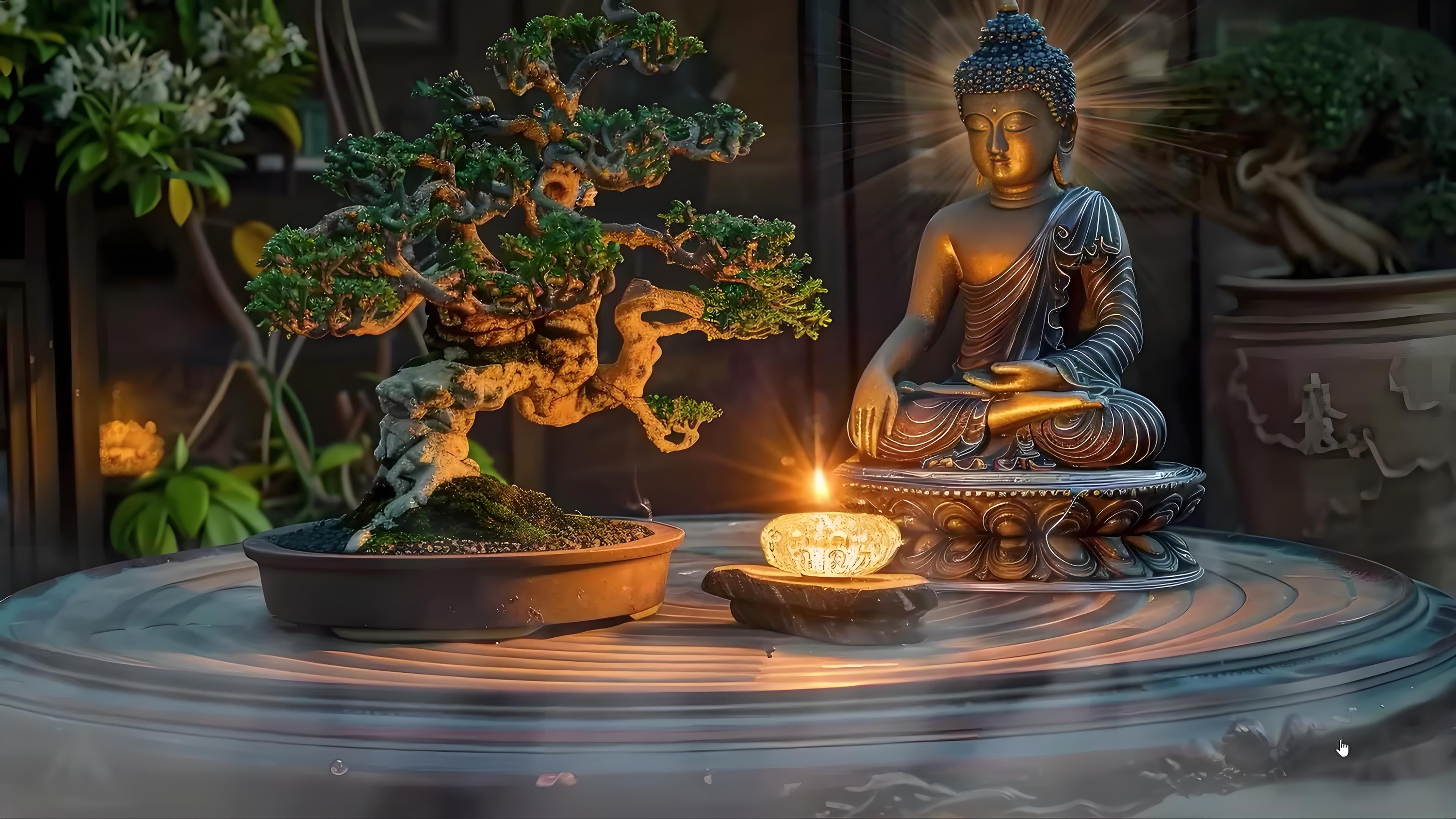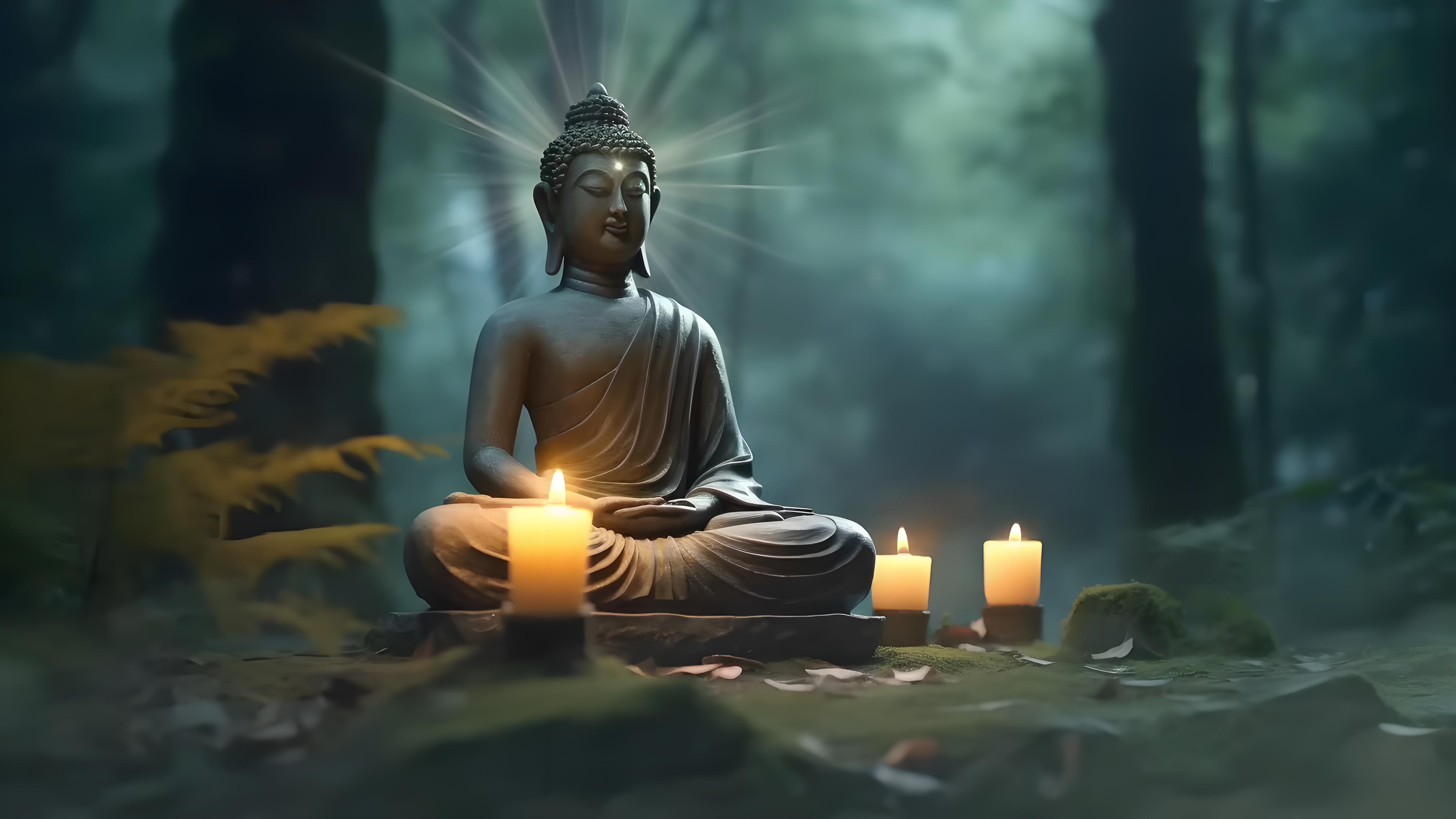type
status
date
slug
summary
tags
category
icon
password
AI summary

Maitreya Bodhisattva, also known as the Future Buddha (Sanskrit: Maitreya, Pali: Metteyya), is often referred to as Ajita Bodhisattva Mahasattva in Mahayana Buddhist scriptures. His name means "Loving-Kindness" and is sometimes transliterated as Maitreya. He is the successor to Shakyamuni Buddha and will be born in our world (Saha) in the future to practice the path and become the next Buddha. He is known as the fifth Buddha of the Bhadra-kalpa (Auspicious Eon) and is commonly called "the Buddha to come."
Maitreya is revered as the founder of the Yogacara school of Buddhism. His vast system of thought was expounded and popularized by the bodhisattvas Asanga and Vasubandhu, and was highly esteemed by Chinese Mahayana masters such as Zhi Qian, Dao'an, and Xuanzang.
According to Buddhist scriptures, Maitreya has two roles: First, as the "Future Buddha" of our world, he will be born and attain enlightenment in 5.6 billion years, teaching and transforming this world. Second, as the lord of the Inner Court of Tusita Heaven, he currently expounds the Dharma to celestial beings as a bodhisattva. This unique dual identity as both a future earthly Buddha and a present celestial bodhisattva is not shared by other bodhisattvas.

Maitreya Bodhisattva was a historical figure who lived during the time of Shakyamuni Buddha. He was born in Kapilavastu, India, to a Brahmin family. His father, Kapali, was the prime minister of the kingdom of Varanasi. From birth, Maitreya possessed auspicious physical features and extraordinary intelligence. After examining the child, a physiognomist exclaimed in astonishment, "This child has the features of a Wheel-Turning King. When he grows up, he will surely become a Chakravartin (universal monarch)."
This news quickly reached the king's ears, causing great alarm among the court officials who feared a potential coup. They urgently sought to find and eliminate the child. Sensing the impending danger, Maitreya's father hid him in his uncle's home. When Maitreya grew up, his uncle encouraged him to meet the Buddha and listen to his teachings. Subsequently, Maitreya renounced lay life and became a monk.
Having grown up in a wealthy family, Maitreya continued to enjoy socializing with noble families and dressing well even after becoming a monk. Once, when Mahaprajapati Bhikkhuni (the Buddha's aunt) offered a gold-threaded robe to the Buddha, he gave it to the monks. Seeing its extravagance, none dared to accept it except Maitreya, who wore it daily while begging for alms.
Maitreya later recounted in the Shurangama Sutra, "I remember in the past, there was a Buddha named Candrapradipa (Lamp of the Sun and Moon). I became a monk under his guidance, but I was obsessed with fame and fortune, and enjoyed visiting noble families." In the Lotus Sutra, Manjushri Bodhisattva also described him as "always harboring laziness, attached to fame and gain, insatiable in his pursuit of renown, and frequently visiting wealthy households." These accounts illustrate the longstanding nature of his habits.
In fact, Maitreya's history of Buddhist practice predates that of Shakyamuni Buddha. Although he valued wisdom, he also enjoyed socializing and cared about food and clothing. His diligence was not as strong as Shakyamuni's, resulting in the latter's faster progress. In the "Sutra of Maitreya's Original Vows," Shakyamuni reminisced, "Maitreya resolved to seek enlightenment 42 kalpas before I did. I made my resolution later. However, in this Bhadra-kalpa, through great diligence, I surpassed nine kalpas and attained supreme, perfect enlightenment."

According to the "Sutra on the Visualization of Maitreya Bodhisattva's Rebirth Above," Buddha told Upali, "Maitreya was first born in the Brahmin family of Kapali in Kapilavastu, Varanasi. Twelve years later, on the fifteenth day of the second month, he returned to his birthplace, sat in the lotus position as if entering nirvana, his body turned a purple-gold color, radiating light as brilliant as a hundred thousand suns, and ascended to the Tusita Heaven."
Maitreya later became a disciple of Shakyamuni Buddha. He entered nirvana before Shakyamuni and now resides in the Inner Court of Tusita Heaven, expounding the Dharma to celestial beings. He will descend to the human realm 5.66 billion years after Shakyamuni Buddha's parinirvana. According to the "Sutra on Maitreya's Descent and Attainment of Buddhahood," at that time, in Jambudvipa of the Saha world, there will be a city called Ketumatī, ruled by a king named Sankha. Maitreya will be born into the family of a great minister named Subrahma, descend to the human world, renounce lay life, practice the path, attain enlightenment, and preach the Dharma, following a similar path to Shakyamuni Buddha. He will hold three great Dharma assemblies under the Dragon Flower Bodhi tree, liberating 9.6 billion, 9.4 billion, and 9.2 billion sentient beings respectively, helping them to open the Dharma-eye of wisdom and attain Arhatship, freeing them from the cycle of birth and death. This led to the development of the concept of a Pure Land on Earth in Mahayana Buddhism, believing that when Maitreya Bodhisattva descends to the world, he will be able to save all sentient beings.
The "Sutra on Maitreya's Great Attainment of Buddhahood" records, "Maitreya Buddha will live in the world for 60 billion years, out of compassion for sentient beings, allowing them to attain the Dharma-eye. After his parinirvana, gods and humans will cremate his body. The Wheel-Turning King will collect his relics and build 84,000 stupas across the four continents. The true Dharma will remain in the world for 60,000 years, and the semblance Dharma for 20,000 years."

Maitreya Buddha is a very fortunate Buddha. After his advent, he will bring many changes to the human world. People's lifespans will extend to 84,000 years without premature deaths. Everyone will be 16 zhang (about 52 feet) tall and will enjoy supreme peace and happiness daily, finding joy in deep meditative states. Mountains, rivers, and rocky cliffs will naturally disappear, leaving mostly plains. The seas will be calm, the land fertile, with many natural pleasure gardens. Throughout the four seasons, wind and rain will be favorable, flowers will bloom, all species will live in harmony, crops will be abundant, and fruits will be sweet.
Natural rice will grow without chaff, fragrant and delicious, ripening without the need for cooking. People who eat it will live long lives without any illness. There will be no calamities, and people's hearts will be filled with great goodness, free from greed, anger, ignorance, pride, and doubt. There will be no killing, stealing, sexual misconduct, false speech, or intoxication. Everyone will know how to practice purity of body, speech, and mind. People's hearts will be equal, without discrimination or disputes. They will greet each other with joy and encourage one another with kind words. People will perform myriad good deeds without any evil actions, and food will be plentiful.
Clothing will not need to be woven by hand; the earth will grow heavenly clothing trees that produce various styles of fine, soft garments for people to pick and wear. Palaces and houses will be created through the power of the Dharma. There will be no pollution on the ground, and when people need to relieve themselves, the earth will open up and close automatically afterward. The land will produce various treasures that can be picked up easily. People will hold jewels in their hands and say, "We've heard that in the past kalpa (referring to our current time), people harmed each other for wealth and treasures, were imprisoned, and suffered greatly. Now these treasures are like tiles and stones, unguarded. This is truly a peaceful world."

At that time, although there will be many small countries, there will be one great unified nation on this earth. There will be a vast plain four million li wide, with the four great seas in each direction. There will be a great capital city called Ketumatī, 500 li from east to west and 280 li from north to south. The land will be vast and flat, with a large population and orderly streets. A dragon king named Waterlight will bring fragrant rain at night and clear weather during the day. In the city, there will be a group of rakshasas called Leaf Flower, who will appear late at night to serve humans, removing filth, cleaning, and sprinkling fragrant water on the ground. Dragons, spirits, and ghosts will all work for humans, but there will be no need for worship or superstition.
With favorable weather and geography, and people living in harmony, protected by spirits, a Wheel-Turning King named Sankha will be born. His capital will be Ketumatī, and he will rule the people with righteous law. He will possess the seven treasures: the golden wheel, the elephant, the horse, the wish-fulfilling pearl, the jade woman, the military general, and the minister of the treasury. He will pacify the world without the use of weapons, bringing freedom, equality, and happiness to all.
Loading...






